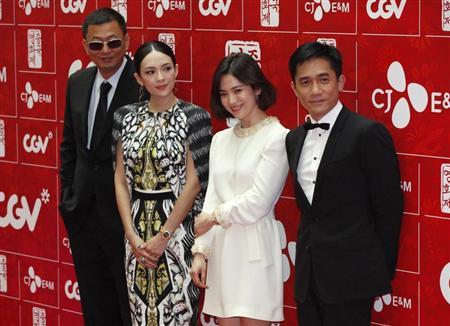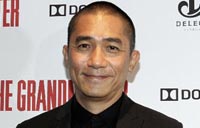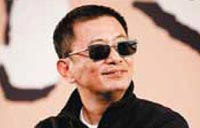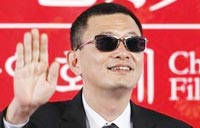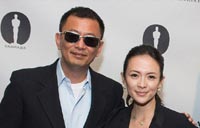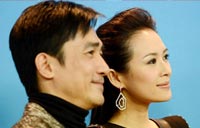Wong Kar Wai's 'The Grandmaster': an exile story told through Kung Fu
Updated: 2013-08-21 10:56
(Agencies)
|
|||||||||||
It was a black-and-white home movie of an old man, diminutive and cancer-stricken, performing Chinese martial arts techniques in a Hong Kong apartment that spurred director Wong Kar Wai to make his latest film, the Kung Fu epic "The Grandmaster."
Wong, best known as an auteur of pensive and brooding urban dramas "Chungking Express" and "In the Mood for Love," said he was deeply puzzled by the intentions behind the homemade film of Kung Fu master Ip Man, made days before his death in 1972.
"I keep asking myself why he wanted to do it and much later I realized that there's a saying in Chinese martial arts that's like 'to keep the fire burning,'" Wong, 57, told Reuters.
"So what I think he intended to do is to do this: he wanted to preserve his technique so it can be shared and taught to future generations," the director added.
"The Grandmaster," in US theaters on Friday, is Wong's attempt at sharing that legacy, telling the story of Ip - the trainer of kung fu film icon Bruce Lee - as a man whose calling as one of China's martial arts masters was taken from him by the upheaval of World War 2.
Starring longtime Wong collaborator Tony Leung as Ip, the film is divided into three parts that span the kung fu master's adulthood in 1930s southern China and his exile in Hong Kong following the Chinese revolution in 1949.
The story of Ip, who was born in Foshan, China, in 1893, has also experienced a revival in recent years with a 2008 biopic and a TV miniseries broadcast earlier this year in Hong Kong, China and other Asian countries.
But Wong said he wanted to differentiate his film, which was released in parts of Asia and Europe earlier this year, from others by conveying technical authenticity, specifically the Wing Chun style of kung fu.
"I wanted to make a film about Chinese martial arts in a different way, to tell you more about what is the value of Chinese martial arts," he said, adding that Leung twice broke his arm while training for the role.
Other Chinese martial arts in "The Grandmaster" include Baji and Xinjyi, each characterized by swift and powerful handwork.
Today's Top News
Merkel makes visit to Nazis' Dachau camp
Expanded Sino-US exchanges
Premier Li stresses need for reform
Children with HIV live in fear
Kidney trafficking operation smashed
China to crack down on illegal online drugs
Food safety tops public's concerns
Monkeys at park given contraceptives
Hot Topics
Lunar probe , China growth forecasts, Emission rules get tougher, China seen through 'colored lens', International board,
Editor's Picks

|

|

|

|

|

|
